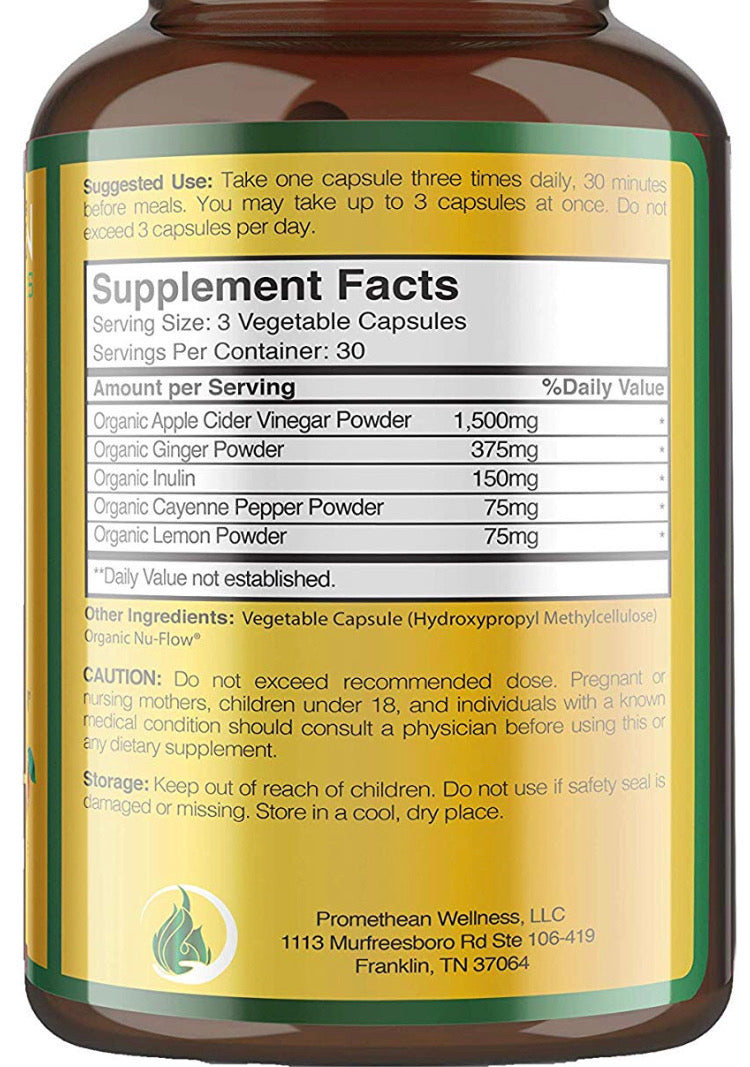With so many supplements being readily available it can become a bit overwhelming and confusing. This makes choosing a proper supplement even more difficult. Knowing and understanding the supplement label can help you decide which one might be best. So, the next time you are looking at buying a new bottle please keep these key points in mind. You owe it to yourself to know exactly what you are putting in your body.
Read the label, Take the Suggest Serving Size
Labels are not placed on a supplement bottle just because the FDA requires it. The label is there so you know exactly what you are taking. Sometimes it’s a matter of how much of an ingredient is there, and sometimes it’s a matter of how little. We also need to pay attention to the daily dosage listed and serving size on the label. It contains important instructions on how to receive the maximum benefits. Not all serving sizes are the same, so pay attention and make sure you are taking the correct dose and not taking too little or too much. Taking more than you need is always more expensive and can also raise your risk of experiencing side effects. For example, getting too much vitamin A can cause headaches and liver damage, reduce bone strength, and cause birth defects. Excess iron causes nausea and vomiting and may damage the liver and other organs.
Know and Understand Measurements and Abbreviations
Each supplement like a capsule, pill, powder, gummy or drink will have the amount of each active ingredient. The label also includes non active ingredients like binders, fillers and flavorings. Every nutrient in the supplement is listed on the label followed by the, “International Unit” otherwise known as, “I.U.”. This is a standard global unit of measurement for fat soluble vitamins A, D, and E. There will also be a standard unit of measurement for water soluble vitamins C and B complex and minerals. You need to pay very close attention to this because one might think, “Oh, this has Vitamin B, I must get this one, it’s better”. But, when you look closely you see, “mcg” next to it. If you didn’t know, “mcg” stands for microgram. A microgram is 1/1,000 of a milligram. And, a supplement with a full milligram of a nutrient will have, “mg” next to it. So 375 milligrams of organic ginger, for example, is equivalent to 375,000 micrograms of organic ginger. In other words, if you're getting your organic ginger in micro-doses, it's not going to do anything for your body.
What is the Percent Daily Value?
Percent Daily Value or PDV is the percentage that one portion of that ingredient can contribute to your daily recommended needs. Here is a good example, the label on a daily multivitamin states the PDV of vitamin A is 50% while the calcium content is 22% PDV. This means one tablet is providing you half the vitamin A and 22% of the calcium you need per day. With the PDV, you know that you need to get the remaining 50% of vitamin A and 78% of calcium from your diet. Other ingredients within a single multivitamin serving often provide 100% of certain vitamins and minerals, so you know you have already had your daily dose. Bad nutrients such as added sugars, saturated fat, trans fat, cholesterol and sodium should have a low PDV. These numbers are based on a 2,000-calorie diet. If you are trying to lose weight then you would want to refrain from consuming any additional bad nutrients, like added sugar. If a product has less than 5% PDV then it is considered low in that nutrient. If it has more than 20% PDV then it is considered high in that nutrient.
Read Expiration Dates and Always Store in a Cool, Dry Place
In order to take advantage of a supplements full potency it is very important to use by the expiration date. If the date has passed, throw it away. While we all would think our supplements should be kept in our bathroom medicine cabinet things like moisture, light, heat, and humidity can make your supplement breakdown and not be as effective. Also keep in mind that all supplements need to be kept out of the reach of children. That is why its not a good idea to store them in a refrigerator or low cabinet.
Supplements are NOT a Magic Pill
Webster’s Dictionary states the definition of a supplement is something that completes or enhances something else when added to it. Just because you take a supplement that helps with weight loss, lowering blood pressure or regulating blood sugar doesn’t mean you don’t need to live a healthy lifestyle. This includes a balanced diet, regular exercise, and enough sleep. It is important to get the full daily serving of all nutrients our body needs to thrive and be healthy.
At the end of the day ask yourself, “Would I buy a new shirt without reading the size on the tag”? No, you wouldn’t. So, whether you are already taking a supplement or thinking about taking a new one keep these key points in mind. And, as always, before you add or change any supplement to your routine talk with your healthcare provider about any possible interaction you may have with your prescription medications.

